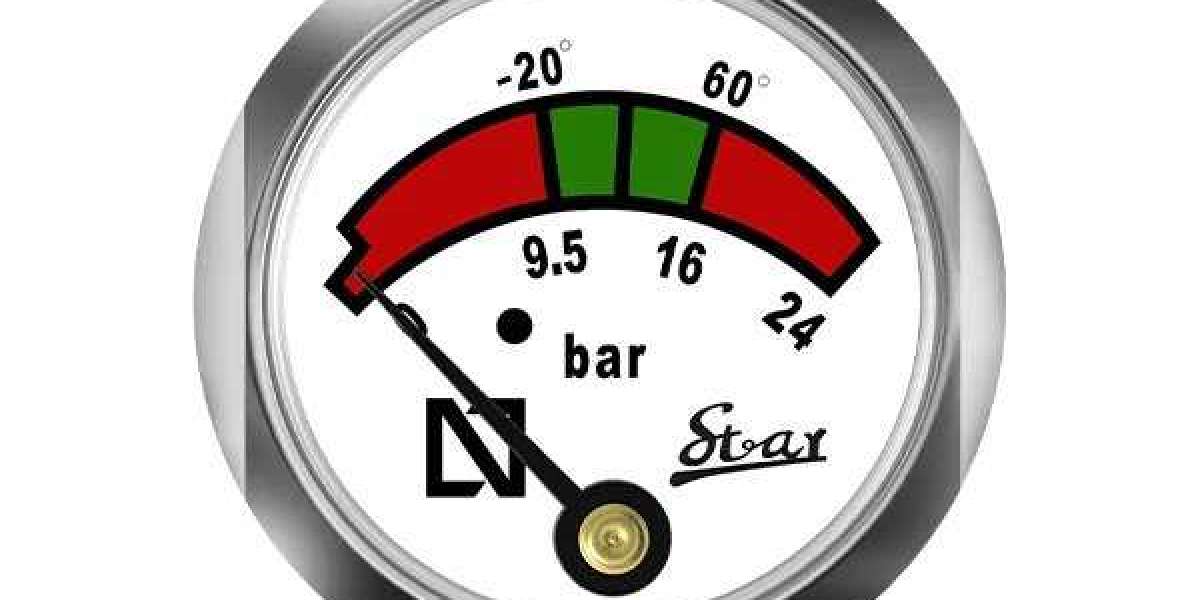Pressure gauges are an essential component in many industrial processes, providing accurate and reliable measurements of fluid and gas pressures. However, not all pressure gauges are created equal, and the quality and reliability of these instruments can vary greatly depending on the manufacturer and certification standards. In this blog post, we will explore the benefits and advantages of using AENOR certified pressure gauges in industrial applications, and how they can help ensure the safety and efficiency of your operations.
What is AENOR certification?
AENOR is a Spanish certification body that provides quality and safety certifications for a wide range of products and services. AENOR certification is recognized globally as a mark of quality and reliability, and is awarded to products that meet strict standards of performance, safety, and environmental sustainability.
AENOR certification for pressure gauges is based on the European standard EN 837-1, which sets out the requirements for the design, construction, and performance of pressure gauges. To be certified by AENOR, pressure gauges must undergo rigorous testing and inspection to ensure that they meet these standards, as well as additional requirements for accuracy, durability, and reliability.

Benefits of using AENOR certified pressure gauges
Using AENOR certified pressure gauges in your industrial processes can provide a number of benefits and advantages, including:
1. Improved accuracy and reliability
AENOR certified pressure gauges are designed and manufactured to meet strict standards of accuracy and reliability, ensuring that they provide consistent and accurate measurements over time. This can help to improve the efficiency and safety of your operations, as well as reduce the risk of errors or malfunctions.
2. Enhanced safety and compliance
Pressure gauges are often used in applications where safety is critical, such as in the oil and gas industry or in chemical processing plants. AENOR certified pressure gauges are tested and certified to meet strict safety standards, helping to ensure that they are safe and reliable for use in these environments. Additionally, using AENOR certified pressure gauges can help you to comply with regulatory requirements and industry standards, reducing the risk of fines or penalties.
3. Increased durability and longevity
AENOR certified pressure gauges are designed and manufactured to be durable and long-lasting, even in harsh or demanding environments. This can help to reduce the need for frequent replacements or repairs, saving you time and money in the long run.
4. Improved performance and efficiency
Using AENOR certified pressure gauges can help to improve the performance and efficiency of your industrial processes, by providing accurate and reliable measurements of pressure. This can help you to optimize your operations, reduce waste and downtime, and improve overall productivity.
Choosing the right AENOR certified pressure gauge
When choosing an AENOR certified pressure gauge for your industrial application, there are several factors to consider, including:
1. Pressure range
Pressure gauges are available in a wide range of pressure ratings, from low-pressure gauges for air and gas applications, to high-pressure gauges for hydraulic and pneumatic systems. It is important to choose a gauge that is rated for the specific pressure range of your application, to ensure accurate and reliable measurements.
2. Connection type
Pressure gauges are available with a variety of connection types, including threaded, flanged, and welded connections. It is important to choose a gauge with the appropriate connection type for your application, to ensure a secure and reliable connection.
3. Dial size
Pressure gauges are available in a range of dial sizes, from small gauges for compact applications, to large gauges for easy reading from a distance. It is important to choose a gauge with a dial size that is appropriate for your application, to ensure easy and accurate reading of pressure measurements.
4. Material of construction
Pressure gauges are available in a variety of materials, including stainless steel, brass, and plastic. It is important to choose a gauge with a material of construction that is appropriate for your application, taking into account factors such as corrosion resistance, durability, and compatibility with the fluid or gas being measured.
Conclusion
In conclusion, using AENOR certified pressure gauges in your industrial processes can provide a range of benefits and advantages, including improved accuracy and reliability, enhanced safety and compliance, increased durability and longevity, and improved performance and efficiency. When choosing an AENOR certified pressure gauge, it is important to consider factors such as pressure range, connection type, dial size, and material of construction, to ensure that you choose a gauge that is appropriate for your application. By choosing the right AENOR certified pressure gauge, you can help to ensure the safety and efficiency of your operations, and achieve optimal performance and productivity.
Established since the year of 1985, Safestar Co., Ltd. has been dedicating in producing and researching the pressure gauges for fire extinguishers. Our products have got EN3-7 approval, Spanish AENOR certificate and UL approval. Striving for more than 40 years, now we have 230 employees and occupy an area of 5 hectares and building area of 30000 ㎡, possesses more than 120 sets of digital control machines , more than ten of automatic helium gas leaking test machines, more than twenty sets of automatic imaging calibration equipment and automatic production lines. We have high quality products, welcome to contact us!
https://www.safestar.com.cn/Quality-and-reliability-of-AENOR-certified-pressure-gauges.html








